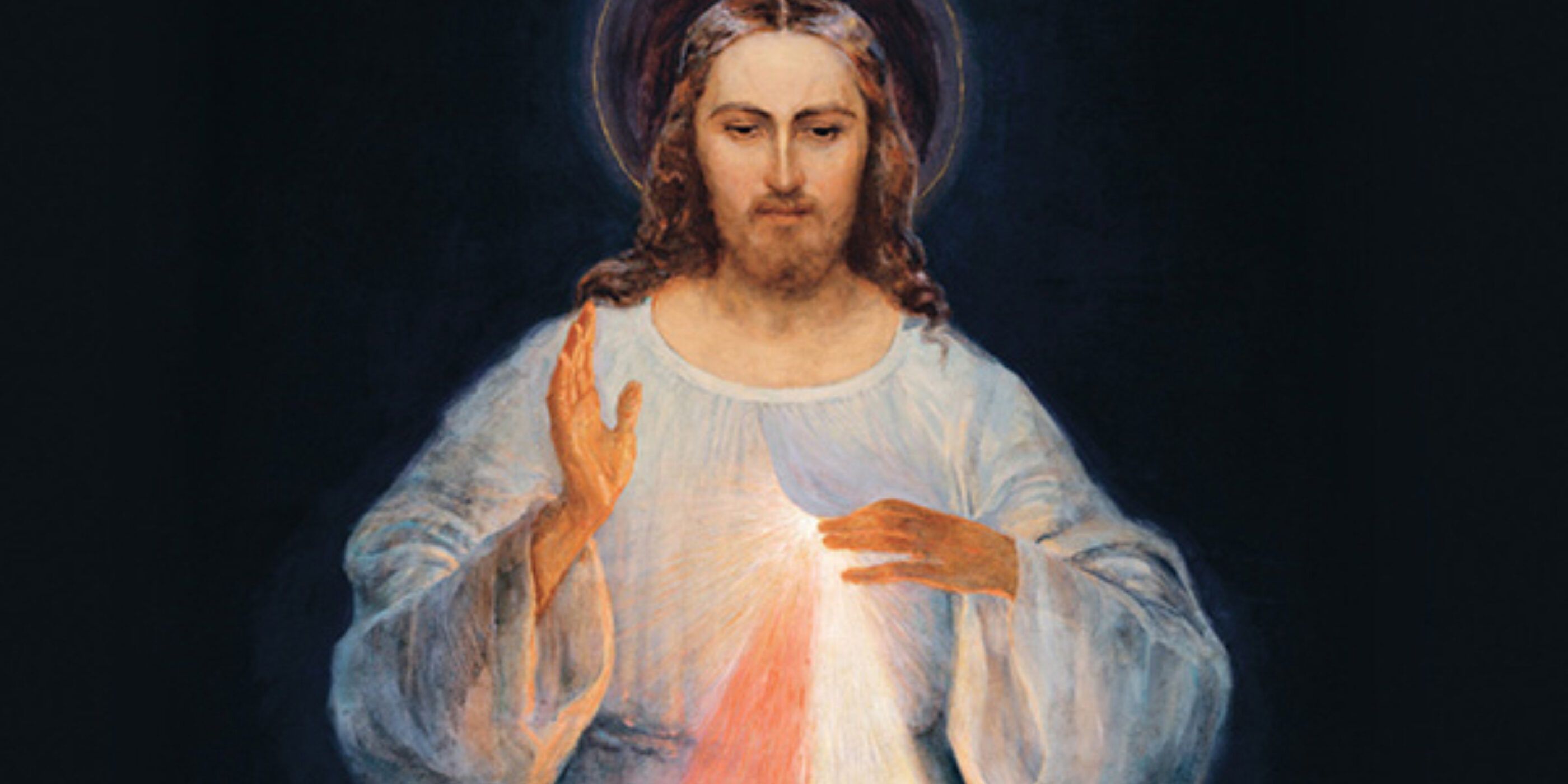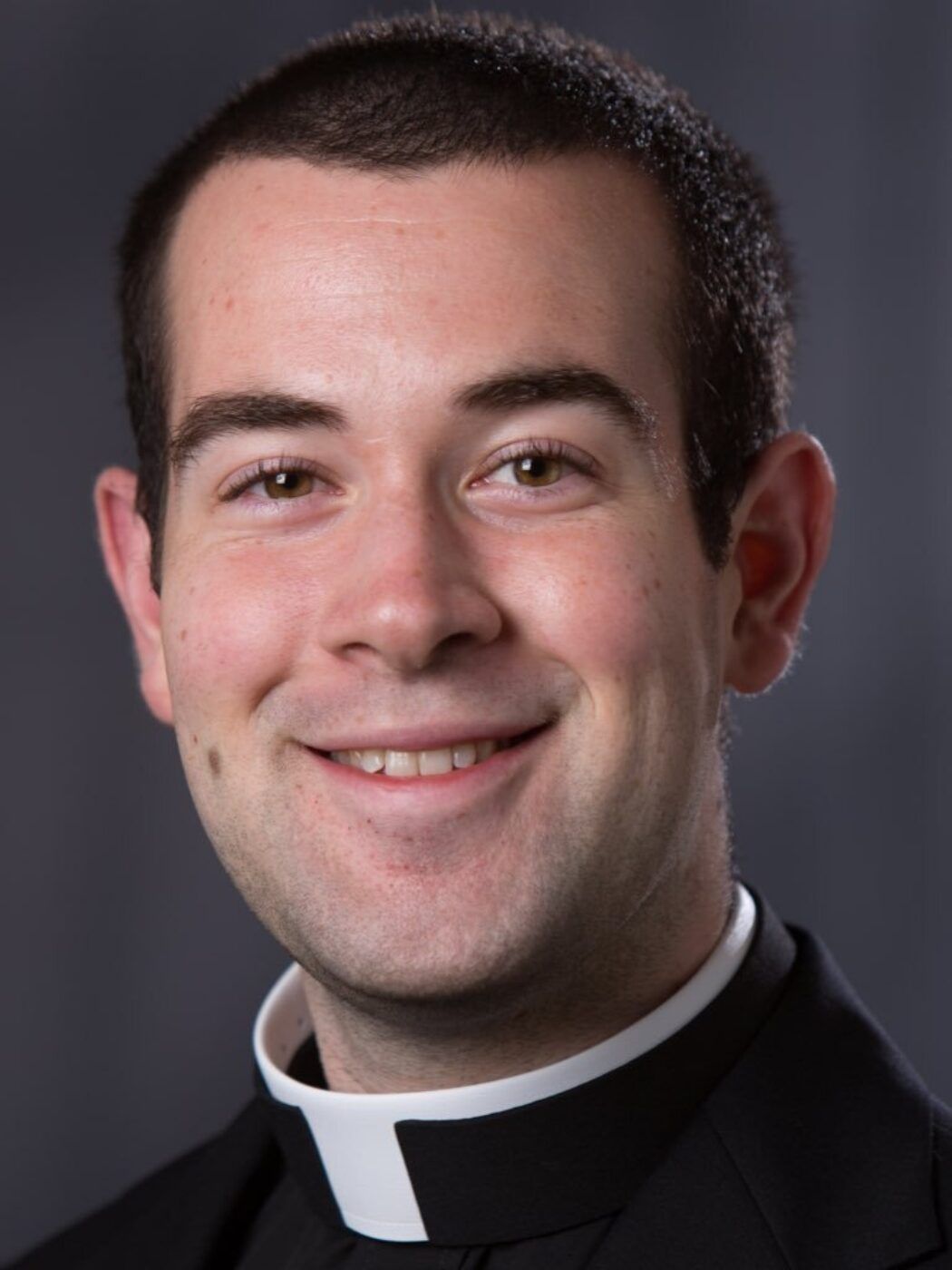In the first half of the last century, as the dark shadows of war fell over Europe, an unknown Polish nun walked along the cobblestones of Vilnius on the way to see her confessor. She was hardly more than a girl, having left home and family behind to join the Sisters of Mercy. In the community, she was considered of little account, often prone to sickness and with only a meager education. For these reasons, what she told Father Michael Sopocko that day was all the more shocking: Jesus had appeared to her.
The message which Jesus confided to this simple soul held a significance which went far beyond the sister herself and would go forth to embrace the entire expanse of the world. The name of Sister Maria Faustina would pass from the hidden halls of her convent to the loggia of St. Peter’s Basilica. And what was this message? Our Lord said to her that aching humanity would find no rest for itself until peoples embraced the mercy offered by God. God, for his part, has no desire to condemn the world. Indeed, he would much rather that sinners turn back to Him and live. He wants us to receive the fullness of His gifts. It was for this very reason that He died upon the cross. But so many people still don’t know about this or choose not to act upon it. And so, in order to make the richness of God’s mercy more widely known, Jesus asked that a special feast of Divine Mercy be established. Today is that very day.
There are three basic elements which comprise a real encounter with God’s mercy, all of which we are invited to experience in our own lives. The first of these is the realization of our own need for mercy. In what sense do we need mercy? Our presence here in church attests to the fact that we desire to follow Jesus and live according to the gospel. We're all “basically good people,” aren't we? After all, we probably aren’t scheming to kill anyone. We’re not going to go out and rob a bank on the way home from Mass. But the habits of life necessary for merely avoiding prison versus getting to heaven are not the same. If Christianity enshrines a relationship of love between God and us, then there’s going to be a lot more to it. Love doesn’t flourish when it’s boxed into a little corner of our life. Love wants to fill every hidden nook and crevice of our lives. But so often we barricade certain aspects of our life off from God for whatever reason: something seems too essential, or too painful, too complicated, or too shameful. These are the areas of life which need Love the most. And Love comes to them in the form of soothing mercy.
When we measure ourselves according to what Jesus asks of us rather than by the standards of the world, perhaps we can indeed find areas in which we need mercy. If we were to consider ourselves as reflected in the eyes of Jesus, we would understand a bit better how deeply we are loved and how powerfully we are called not simply to avoid felonies but to express our love for God in every single aspect of our lives. In our Second Reading, from the first epistle of St. John, we hear precisely this: “For the love of God is this, that we keep his commandments. And his commandments are not burdensome.” For all those times in which we fall short of what we are called to be as true sons and daughters of God, we need divine mercy.
The second stage of encounter with this great mercy is the act of receiving God’s forgiveness. God does not want us to remain stalled in the consideration of our own misery. He wants us to give all our woes, all our spiritual ills, every sin, over to Him for healing. Jesus told St. Faustina, “My mercy is greater than all the sins of the world. For you I descended from heaven to earth; for you I allowed myself to be nailed to the cross; for you I let my Sacred Heart be pierced with a lance, thus opening wide the source of mercy for you. Come then with trust and draw graces from this fountain…I never reject a contrite heart…You will give me pleasure if you hand over all your troubles and griefs. I shall heap upon you the treasures of my grace.”
How, then, do we go about handing over our griefs to God? The answer lies in today’s Gospel. Jesus, prior to ascending to the heavens, gave his apostles the power to forgive sins in His name. Though we don’t see our Lord face-to-face as did the people of his era, we can still experience the reality of His presence through the priesthood of Christ which has been transmitted from the apostles down to the present day. Just as people came to Christ confessing their sins, so we can approach Christ in the person of His priests, in the sacrament of Confession. Jesus said to St. Faustina that the priest is himself like a screen, behind which the veiled presence of Christ is active and powerful. When we come to Confession, we can know with assurance that our sins are forgiven because it is Christ who forgives.

Confession is not something which we need to fear, even if we have been away for a very long time. In addition to having all your sins forgiven, you will receive special help from God to fortify you against temptation in the future. And the peace of soul which comes from Confession is a sort which cannot be obtained anywhere else because it is a peace which comes from a real, sacramental encounter with Christ, a peace which the world cannot give.
The third stage of encounter with mercy is based on the two which proceed it. Knowing our own human frailty, and having experienced the forgiveness of God, we are called to extend mercy to others. Knowing how much our Lord has forgiven us, how can we then deny mercy to others who have offended us? Indeed, one of the graces of receiving forgiveness is that it helps to ease the knots of resentment which bind our own hearts, enabling us to let go of old grudges and estrangements. Thus, the joy and freedom which come to us from God are meant to spread out all around through lives characterized by the giving and receiving of mercy.
But we don’t pretend that this is easy. Forgiveness is more often a process than a one-time event. Every time we are tempted to return to anger and bitterness, we have the opportunity to ask God anew for the grace to forgive from the heart. We want to forgive others, as God has forgiven us, and for this we need God’s power to lift us up and make it possible.
And so we come again this Sunday to the altar at which we celebrate the sacrament of love, the most holy Eucharist. It is here that we may draw strength from God’s great love, manifested in the Body and Blood of our Lord Jesus Christ. It is here that our hearts are strengthened and revitalized. It is here that we encounter the one who prayed, “Father, forgive them, for they do not know what they are doing.” As we draw near to Jesus, may the grace we receive through our participation at the altar be more and more reflected in the way we seek forgiveness and offer it to others. Amen.


